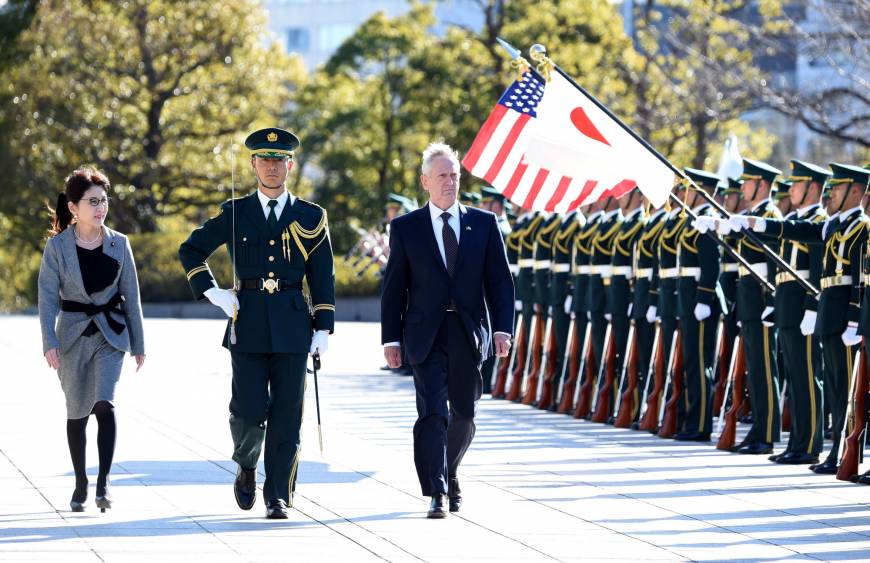 U. S. Defense Secretary James Mattis wrapped up his four-day trip to Asia on Saturday, reassuring Japan and South Korea that America is committed to the security of the Asia-Pacific region despite fears of abandonment stoked by President Donald Trump.
U. S. Defense Secretary James Mattis wrapped up his four-day trip to Asia on Saturday, reassuring Japan and South Korea that America is committed to the security of the Asia-Pacific region despite fears of abandonment stoked by President Donald Trump.
If Tokyo’s biggest goals were to have Washington reaffirm the importance of the Japan-U. S. alliance and to have Mattis confirm that the U. S. is committed to the defense of the disputed Senkaku Islands in the East China Sea, then it accomplished its mission, experts said. At least for the moment.
“I think the Abe administration is now relieved,” said Mikio Haruna, a noted journalist who specializes in diplomacy and is a visiting professor at Waseda University in Tokyo. “Trump has said many things that contradict the mutual understanding between Japan and the U. S., but Mattis has made it clear that Trump’s position (on the alliance) is not so different from Obama’s.”
During a joint news conference with Defense Minister Tomomi Inada, Mattis said, “Let me assure, President Trump’s administration has placed a higher priority in this region, and specifically on a long-term ally like Japan.”
He added, “I told minister Inada that the U. S. is committed to the defense of Japan under the treaty of mutual security.”
Article 5 of the Japan-U. S. security treaty obliges Japan and the United States to jointly defend a Japan-administered area should it be attacked by a third country. Mattis’ comment was widely interpreted as a warning to China, which claims the Senkakus as Diaoyu and regularly sends government ships and airplanes to patrol the sea around them.
Narushige Michishita, professor at the National Graduate Institute for Policy Studies in Tokyo, said that during his meetings with Prime Minister Shinzo Abe and Inada, Mattis had given Japan exactly what it sought: assurance to apply the security treaty to the Senkakus and keep China in check.
In the next high-level talks, Japan may be asked to expand its own role to contribute to bilateral security ties, Michishita said.
“During the talks this time, the U. S. offered what Japan wanted, but Trump would be thinking what Japan would offer to the U.






